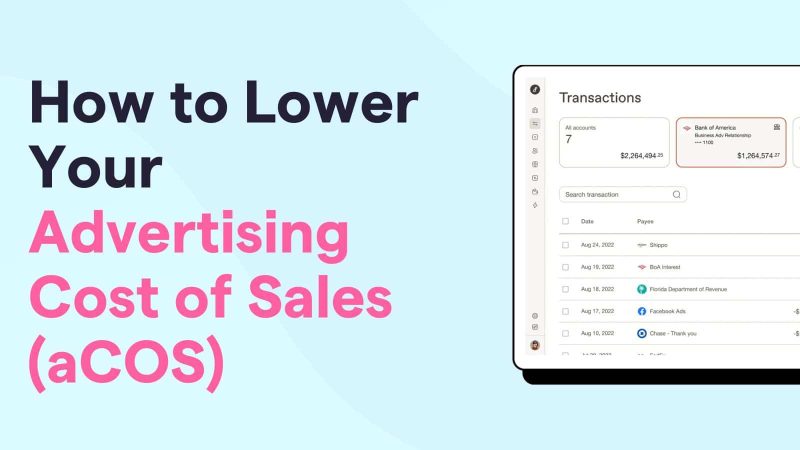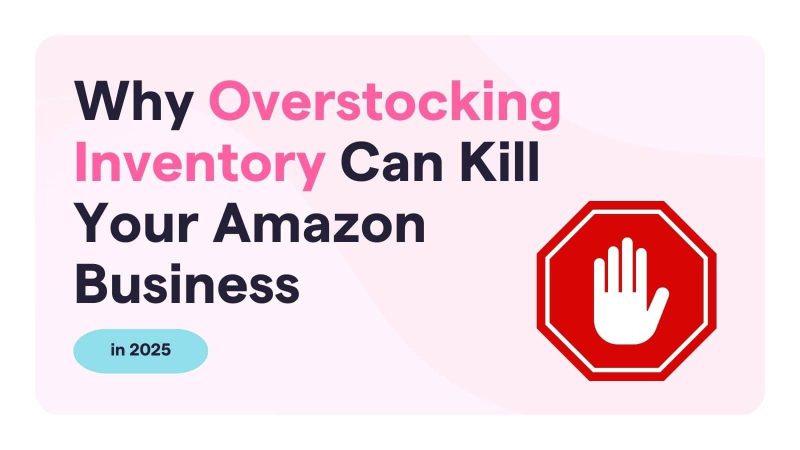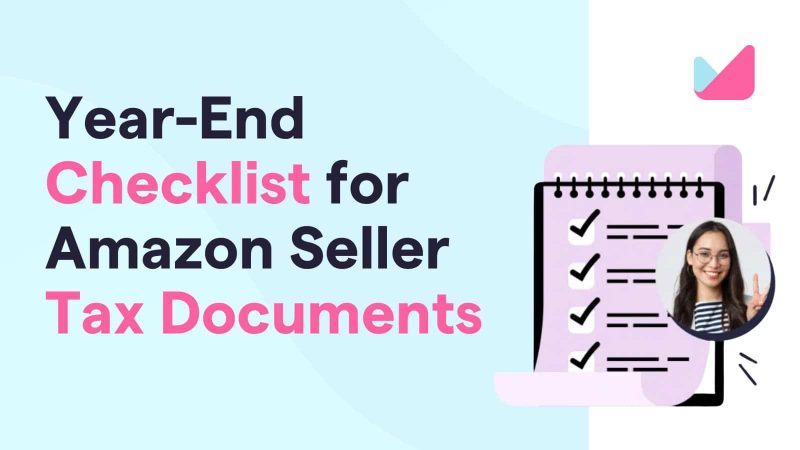When it comes time to sell your Amazon FBA business, the question of whether to work with a broker will inevitably arise. There are a range of place that you can go to sell your company, of which a broker tends to be the most popular.
Business brokers charge a percentage success fee (and sometimes an upfront payment as well) for the service of selling your organization. This commission normally represents around 10-15% of the total sale value for smaller transactions, and less on larger acquisitions.
Whilst it’s easy to gawk at the dollar amount that this can equate to, it’s important to look beyond the top-line figure and consider the value that a quality broker can provide, what is best suited to your situation, and which course of action will put the most money into your bank account.
In this guide, we take a look at the various ways of selling your Amazon FBA business, how to avoid paying high brokerage fees, the key questions that you should ask any broker before engaging their services, and ways to maximize the value of your organization leading up to a sale.
Ways of selling your Amazon FBA business

Do It Yourself
One of the benefits of managing the business sale from start to finish is that you keep all of the proceeds (less tax and legal expenses). By looking after it all yourself, you can present the business in any way that you like, and have much more control over who can see your financials.
If you have people lining up to buy your company, then it might be worth doing it all on your own. However, there are many potential pitfalls and hidden costs that can be mitigated through working with a broker.
Selling through a marketplace or auction is a good way of managing the sale yourself, whilst gaining exposure to a much wider audience.
Marketplace
“Business listing marketplaces tend to be crowded spaces with thousands of listings… To list your business for sale on a marketplace, you need to provide a description of the business, and some basic financials (prospectus). A popular business marketplace is www.bizbuysell.com.”
For smaller Amazon businesses, this can be a great low-cost way of selling your assets without handing a significant chunk of the proceeds over to a broker. If you decide to use a marketplace, you will be responsible for handling everything from start to finish.
The main costs associated with selling through a marketplace are listing fees, legal expenses and taxes.
Auction
“Auction websites like www.flippa.com are great for selling businesses worth less than $5,000 with a quick turnaround time (flippa is also very popular for selling domain names). Buyers come to these auction marketplaces looking for a deal – expect 0.5- 1.5x earnings multiple. Often, these buyers are not seasoned business people, and it is not uncommon for it to be their first purchase, so you may need to guide them through the process.”
If you’re in a rush to sell your FBA business, it has a relatively low value and your personal finances are not entirely dependent on the one seller account, an auction might be a good way to move onto greener pastures.
The closing date on auctions creates a sense of urgency, which can work both for or against sellers – depending on how many people are interested. When selling through auctions, be prepared to help the new owner take over and remember to use a contract that minimizes the risk of future liability as a result of the buyer’s actions.
Broker
“If your business is worth more than $25,000 and you don’t have the time, experience or patience to sell your business, then listing with a broker is most likely your best option. Brokers are experienced in selling businesses and can easily answer any questions you may have along the way. They can help to maximize the sale value, and advise on appropriate terms to protect you legally.”
Compared to managing the sale process yourself, brokers do cost more. However, a good agent knows how to get top dollar for your organization, which can result in a larger payout when done right.
When searching for a broker, it’s important to keep in mind that not all brokers are created equal – although they may charge a similar commission rate, the difference can have a significant financial impact on your future.
Should I sell my Amazon FBA business through a broker?

Some of the key considerations to think about when deciding whether to engage a broker include:
- Do you have potential buyers already interested in purchasing your business? If you feel confident in your ability to handle the sale process internally, and have an exit path already mapped out, it might be worth managing it all yourself. Sometimes, when a seller already has potential buyers interested, they will add a ‘carve out’ provision into their contract with the broker – which reserves the right to sell the business to specific parties without paying brokerage fees.
- How large is your business? For small companies with low valuations, it is often easier to do it yourself. Many brokers set minimum fees as a way to avoid taking on deals that aren’t likely to make them any money. After all, if your commission is less than $1,000 for up to 6 months work, would you really be interested in getting involved?
- Do you have experience with buying and selling businesses? Would your time be better spent growing the business and engaging an expert to get the best price for your company, or are you already skilled at handling such high-involvement transactions? It’s important to keep in mind that whilst properties tend to sell within 10% of the marketed price, businesses transactions can have 50% or more variation from the asking price.
- How sensitive are you? Potential buyers will be looking for every flaw in your business, as this represents negotiating points and potential purchasing risk. Buyers can be very hard-nosed. One of the benefits of working with a broker is that they are emotionally detached from the company, and can therefore act much more rationally during negotiations.
- The real hidden cost is your time – it is not uncommon for a broker to spend 200-300 hours on a sale over a 6 month period. The opportunity cost is not only selling yourself short, but also taking your eye off the operations and letting things lapse in your business. Good brokers know that you have a business to run and selling is their dayjob.
Not all brokers are created equal

Despite the fact that spectacular brokers may charge a similar commission rate to lazy and unscrupulous agents, the financial difference between getting a good broker and a bad one can be enormous.
Here are some of the most important questions to ask potential brokers before signing a letter of intent:
- Are they an expert in your niche, or a generalist broker? Ask for evidence that they understand how Amazon FBA businesses work.
- Have they sold similar businesses in the past?
- Are they qualified as a Certified Broker Intermediary (CBI) and a member of the International Business Brokers Association (IBBA)?
- How long have they been a broker for?
- Have they ever been sued by a listing client or a business buyer? If so, when and why?
- How do they price a business? Note: the generally accepted standard for valuing Amazon FBA businesses is a multiple of seller discretionary earnings + the cost of inventory and delivery costs to FBA warehouses. More information here.
- Find out their closing rate – with roughly 10% of offered companies actually selling, it is important to get an accurate measure of the broker’s track record.
- How are their fees structured? Make sure that you know all costs up front to avoid unexpected surprises down the line.
- How does the broker market listings?
- What do recent clients have to say about the broker’s performance? Normally, the broker’s website will have testimonials from previous customers. Additionally, ask the broker to provide names of owners who’ve sold over the past six months and who you can contact for references.
- Will the broker agree to carve outs? If you already have an interested buyer, it’s important to discuss this point.
- Ask to have a look at teasers and confidential information memorandums (CIMs) that they have prepared for past clients – one of the first things your broker will do is create these documents to entice potential buyers into learning more about your business. The best ones are concise and to the point. Avoid brokers that provide unorganized or ‘cookie cutter’ selling materials.
Other important points to keep in mind

Great brokers are there to make your life easier and earn you as much money as possible. They should be prepared to contact any potential buyer that could be interested in your offering – rather than just focusing on what has worked in the past.
A quality business broker goes beyond just selling your business – looking out for your financial interests, liaising with your accountant and lawyer, and taking actions to ensure that you are happy long after the transaction has been settled.
“Every deal has negotiating points back and forth. The good brokers and buyers know which battles to fight, and which hills to die on.”
The negotiating process can be quite nerve-racking, especially when large sums are involved. Experienced brokers have seen it all before, and can guide you through this process to ensure that you don’t sell yourself short or lose a deal at the last minute due to actions within your control.
During the process of interviewing brokers, you will probably want to know how much they think your business is worth. At this stage, it is common for less experienced or irreputable agents to inflate their estimates in a bid to get your business. However, a good broker knows that providing an accurate valuation in the beginning is key to maintaining their integrity. When valuations are provided upfront, make sure to question how they arrived at that number and what assumptions were made in the process.
Put yourself in their shoes
When working with brokers, it’s important to keep in mind that they are motivated by receiving a success fee once the business sells. Everyone wants to work with the best brokers, and as a result, they are in high demand.
Great brokers have the ability to choose from a wide range of different opportunities. Therefore, haggling down their commission isn’t necessarily the best way to avoid paying high brokerage fees. However, if you are selling a valuable business (e.g: over $2 million), it might be possible to negotiate a lower commission rate whilst still getting the attention of a top quality agent.
The key here is to look for value rather than cost. Most people refer to high brokerage fees as the dollar amount that they pay at the end of the day. One way of avoiding high brokerage fees is to sell your business for a low price – but then the only winner is the buyer.
Oftentimes, when a broker charges a high fee, it is because they have made their clients lots of money. After all, if the broker charges 10%, but your business sells for 25% more as a result, everyone wins. Which brings us to the next point… preparing your business for sale.
Tips for maximizing the value of your Amazon FBA business leading up to a sale
“Beginning with the end in mind forces you to focus on what matters – to build an efficient and effective machine.”
Ideally, you should begin preparing your business for sale at least 6 months before the date when you plan on listing. This way, you will have ample time to tidy up the books, eliminate unnecessary expenses, clear redundant stock and reduce the workload through automation and outsourcing.
From a buyer’s perspective, there are a wide range of risks that come with purchasing a business – especially when they aren’t experienced in the industry. If you put measures in place to lower the perceived risk of purchasing your organization and make it as easy as possible for anyone to take over, this will go a long way towards maximizing the sale value that can be realized.
Here are some apps and services that are worth considering to simplify the operations of your Amazon FBA business:

Cloud accounting software such as Xero is a great financial building block to ensure that your backend runs smoothly. The benefits of cloud accounting are numerous – no more manual backups, other apps and automations can feed data to and from your accounts, and you can easily scale to meet business requirements.
A2X – automated accounting for Amazon sellers. A2X automatically fetches your latest Amazon settlement transactions, and posts summarized transactions to your cloud accounting system. This makes it extremely easy to reconcile sales with payments received. Many sellers simply record settlement payments as revenue – however, this creates an inaccurate set of accounts that can lead to many issues down the line. By using A2X, it is possible to operate using the accrual accounting method with ease.

TaxJar is the leading sales tax software for Amazon sellers. Following on from recent court rulings, sales tax has become a hot topic in FBA seller circles. Unpaid sales tax that hasn’t been properly recorded represents a major risk to potential buyers, as they could be liable for past tax avoidance. By using TaxJar (or alternatives such as Taxify), you can automate the calculating, filing and remitting of sales taxes, and ensure that it is done correctly each time. Even if you aren’t planning to sell your business, this is a good measure to have in place.
Forecastly – one of the keys to ensuring that your products remain in the buy box and appear at the top of relevant search queries is ensuring that you have always stock in FBA warehouses. There are often manufacturer lead times and shipping delays that can push back delivery on orders (especially if you are a private labeller). Forecastly “keeps your cash flowing and your sales rocketing by letting you know when to replenish your FBA inventory, how much to order, and where your shipments are.”
Prep warehouses are an integral part of establishing a hands-off supply chain. When you order inventory from suppliers, it is important to check the stock for damages and faults before sending it to FBA warehouses. Whilst this is easy enough to do manually in the beginning, as your business grows, you’ll want to outsource this job. Prep warehouses can receive your products, inspect them for damages, report second-grade stock, prepare and send them to FBA warehouses. This helps to keep your suppliers honest and quality levels to a high standard.
Freight brokers – navigating the complex waters of international freight is a job that’s best left to the experts. By working with a knowledgeable freight broker, you can relax knowing that they have it covered. If something goes wrong during transit, or regulatory changes disrupt your flow of supplies, it is their job to sort it out.
Other tips and tricks for maximizing the value of your Amazon FBA business prior to listing for sale:

Consider how many products you are selling – too many SKUs can be perceived as a management nightmare. Too few SKUs presents the risk of being eliminated from a key niche that makes up the majority of your revenue.
Have a track record of clean financials – there’s nothing more off-putting to potential buyers than questionable financials. People buy from people, not spreadsheets. If someone can’t trust the numbers that you present, then how can they trust that your business is legitimate?
Know your target buyers and tailor your offering to suit – the types of people who are willing and able to buy your business will vary depending on the value of your operation. This guide takes a closer look at the different types of buyers, and what matters to them.
Moving forward
Once you’ve made the decision to sell your FBA business, it’s time to get everything ready for sale. Make a plan, set milestones along the way and don’t rush the process. The difference between a disorganized sale and one that has been carefully prepared can make a large financial impact on your future.
Hopefully these tips help you to sell your Amazon FBA business and avoid paying high brokerage fees. Getting your accounts in order is a very important part of building an impressive package for potential buyers, which underpins the operational activities of your company.
MuseMinded is a niche accounting firm that specializes in looking after Amazon FBA sellers. We use the latest accounting apps, integrations and automations to make your financial affairs simple and affordable. Whether you’re looking to sell or keep your Amazon FBA business, we can help. Contact us today to find out more.




